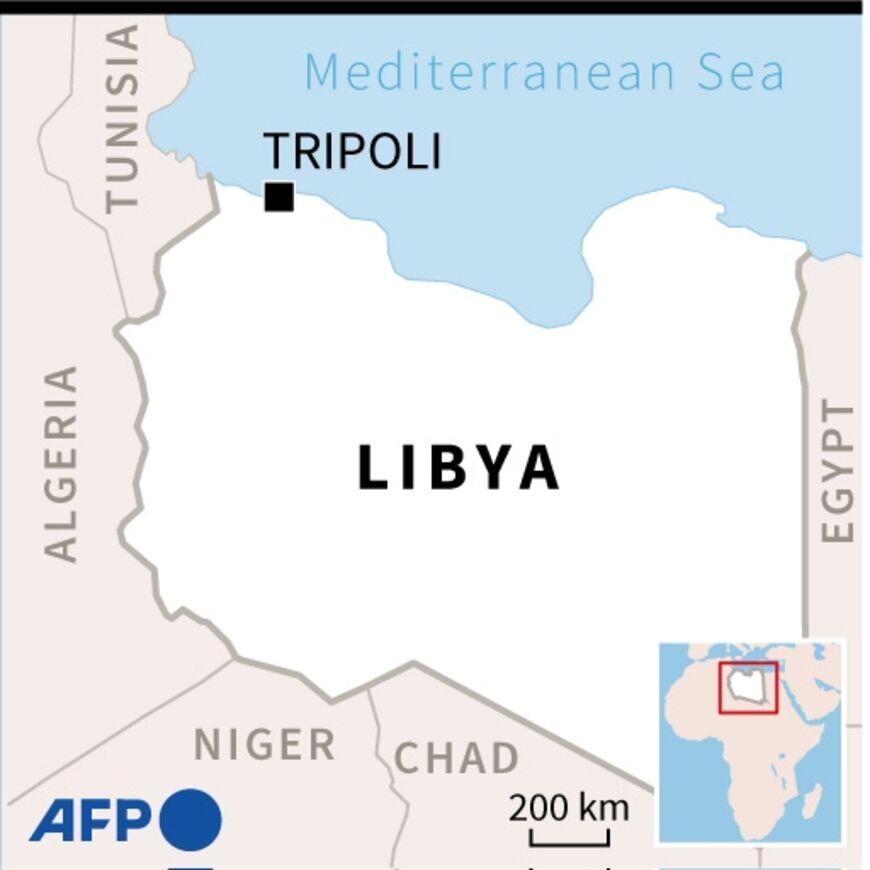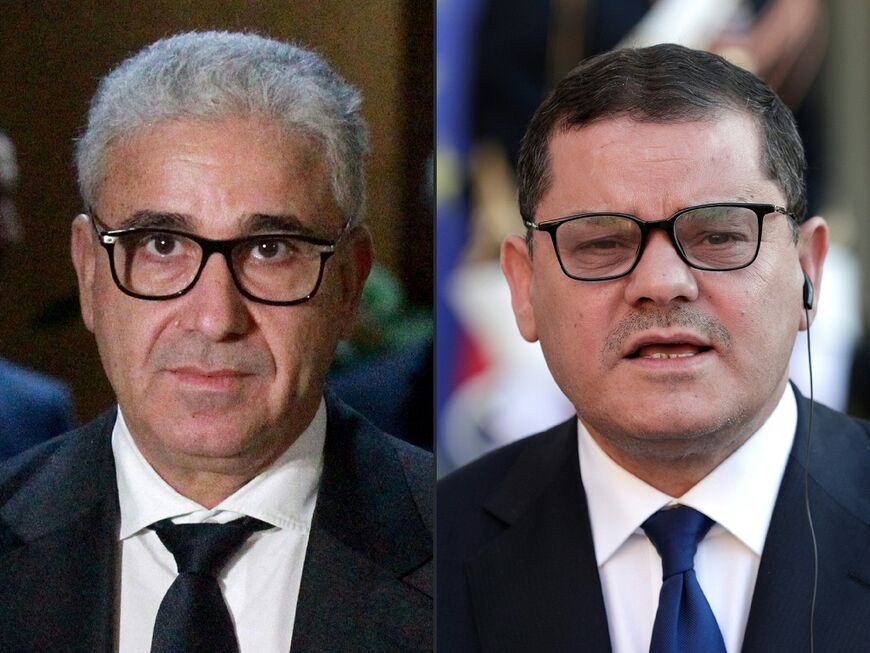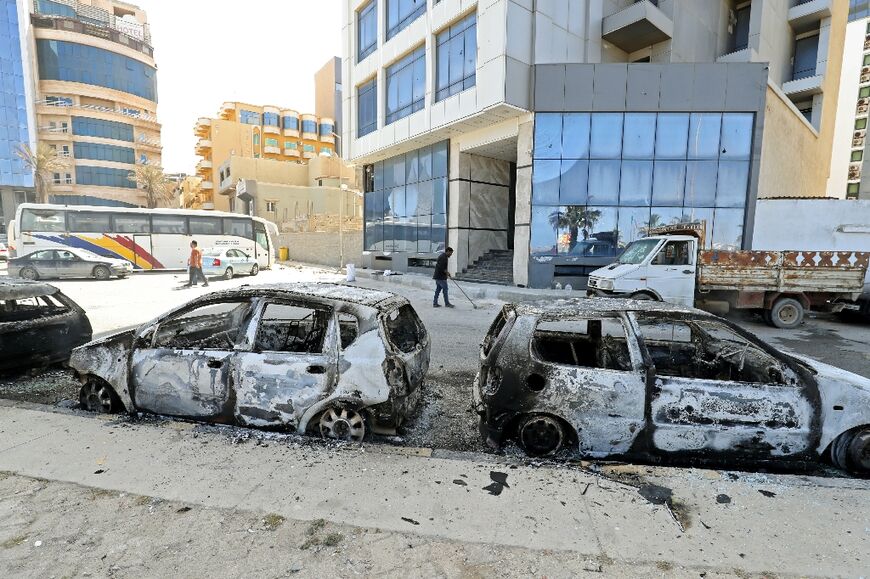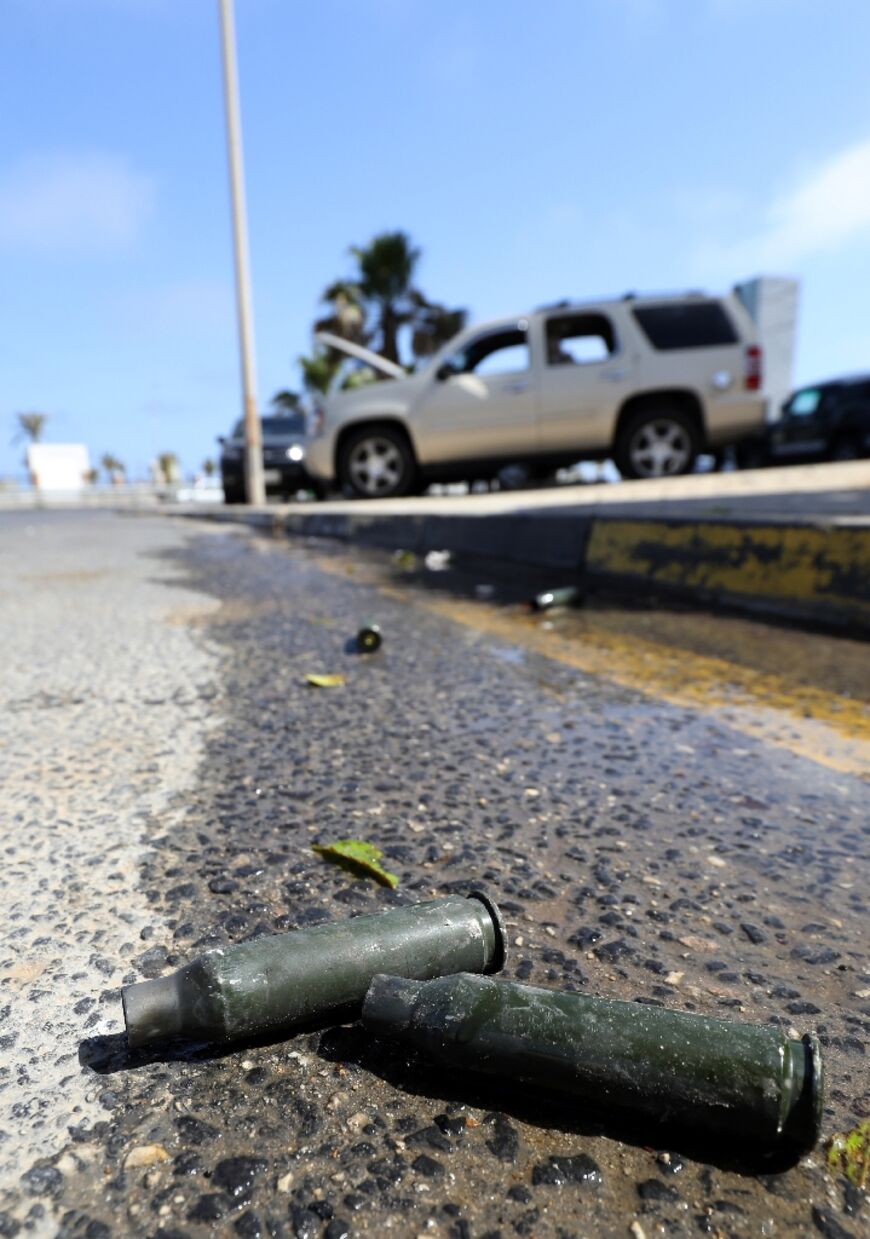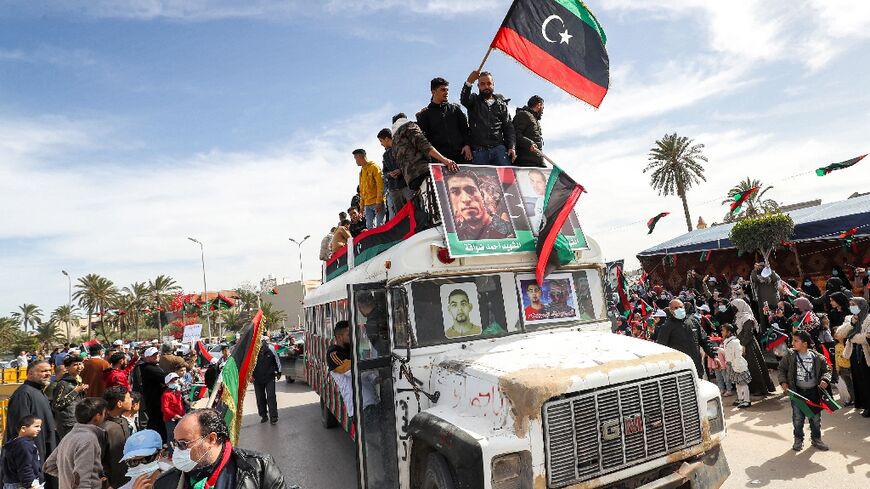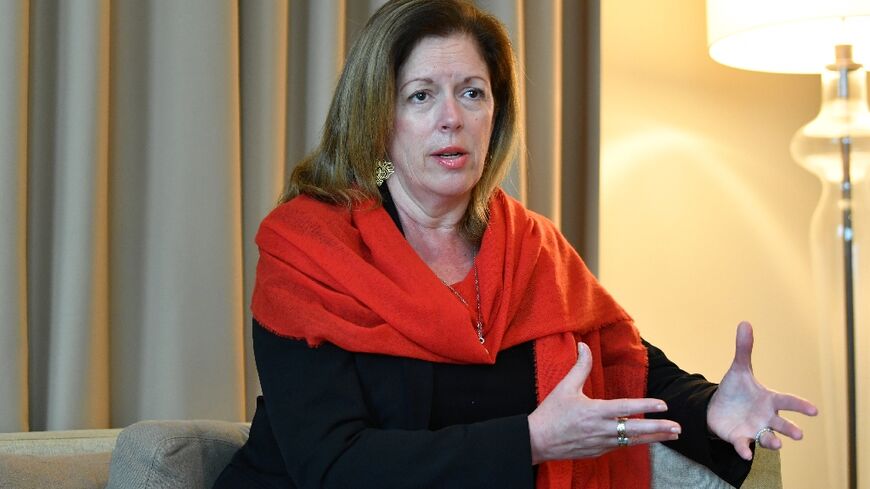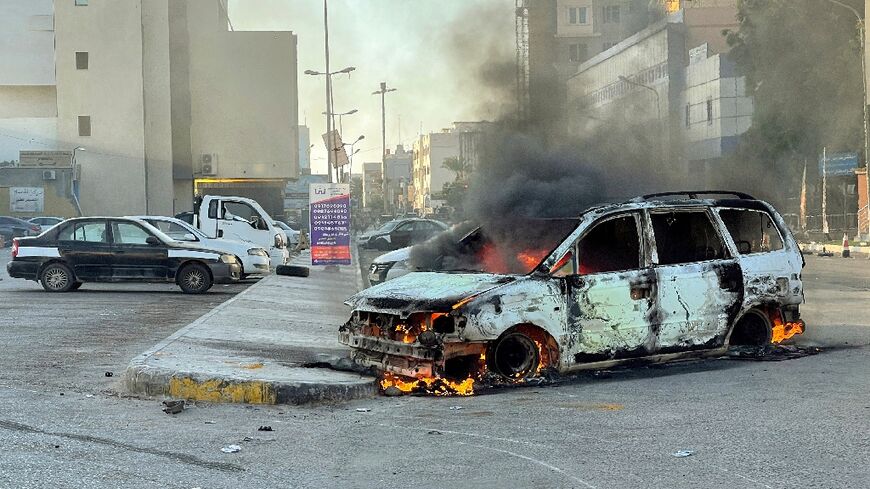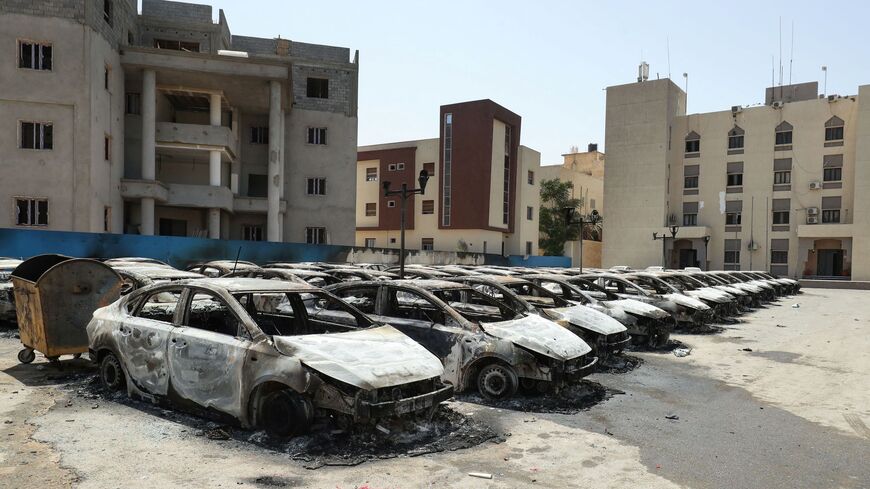Libya capital rocked by deadly battle as rival PM vies for power
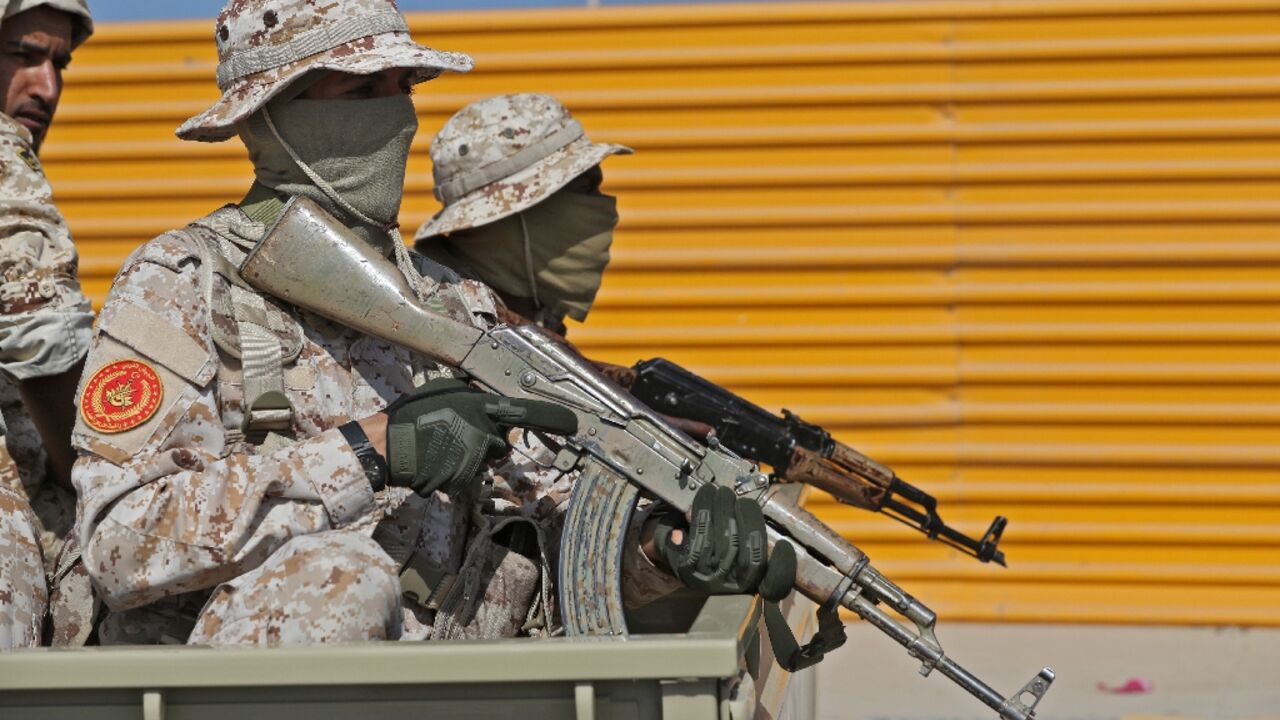
Gunfire rocked oil-rich Libya's capital for several hours Tuesday as a rival prime minister attempted to oust interim premier Abdulhamid Dbeibah, threatening another escalation in the war-torn country.
Fathi Bashagha landed in Tripoli in the early hours of Tuesday and tried to take it by force, sparking pre-dawn clashes between armed groups supporting him and those backing Dbeibah. One man, Ahmad al-Ashhab, died in the crossfire, Bashagha told journalists late in the evening.
Hours after landing, Bashagha left Tripoli citing the "security and safety of citizens", as the United Nations, European Union and United States appealed for calm.
AFP correspondents saw burned-out cars and military convoys late on Tuesday morning.
Dbeibah, based in Tripoli, was appointed under a troubled UN-led peace process early last year to lead a transition to elections set for December 2021, but the vote was indefinitely postponed.
In February, parliament -- based in Tobruk in Libya's east -- opened up the latest in a series of schisms since a 2011 revolt that toppled longtime dictator Moamer Kadhafi. It appointed Bashagha, a one-time interior minister, to replace Dbeibah, arguing his mandate had ended.
But the incumbent has refused to hand over power except to an elected administration, a vow Dbeibah repeated in a televised speech on Tuesday evening.
"Elections are the solution -- there can be no future without them," he said. "This government will continue doing its job until elections are held."
- 'Only the first act'? -
Both Bashagha and Dbeibah come from the western city of Misrata and are backed by different armed groups in the capital.
Bashagha on Tuesday evening addressed journalists from the city of Sirte, saying his delegation had entered the capital "peacefully" but that when fighting broke out, to prevent "casualties, we saw that we needed to leave."
He bitterly criticised Dbeibah, saying that poverty and theft had increased under his rule and he "has lost control of Tripoli".
The clashes between the two sides have raised fears of a return to the all-out conflict that gripped the capital when forces aligned with eastern military strongman Khalifa Haftar launched a failed offensive in 2019-20.
Haftar is among those throwing his weight behind Bashagha, compounding such fears.
Dbeibah's defence ministry said it would respond "with an iron fist" to anyone "attacking security and the safety of citizens".
Dbeibah was later seen meeting the public in the streets of the capital.
His office announced the sacking of his military intelligence chief Osama Juwaili, without citing a reason.
Libya expert Emadeddin Badi said Bashagha had "lost a large proportion of his constituency in his hometown of Misrata, tarnished his anti-crime brand and now tanked his popular support.
"It will be difficult to pick up the pieces" after his failed bid for the capital, Badi added.
But Anas El Gomati, of Libyan think tank the Sadeq Institute, said it was "likely that this is only the first act".
On the international stage, "there is no bandwidth to deal with Libya in light of the conflict in Ukraine," he said.
The UN's top in-country official, Stephanie Williams, urged all sides to maintain calm and avoid "inflammatory rhetoric".
- 'Very grave' -
Pro-Bashagha armed groups had already deployed in March on the edges of the capital, raising fears that a fragile ceasefire in place since October 2020 could collapse.
The creation of two governments echoes Libya's troubled period of rival administrations between 2014 and 2021.
The revolt that toppled Kadhafi plunged the vast but sparsely populated country into violence as armed groups vied for control and a string of interim governments came and went.
Many militia forces have been integrated into the state, allowing them a share in the country's vast oil wealth, and rights groups have accused all sides of abuses.
EU foreign affairs chief Josep Borrell said Tuesday the situation was "very grave".
"We were expecting something like this to happen," he said, pointing to the pressures caused by the failure to hold elections and the re-emergence of rival governments.
The US embassy urged "all armed groups to refrain from violence and for political leaders to recognise that seizing or retaining power through violence will only hurt the people of Libya".


